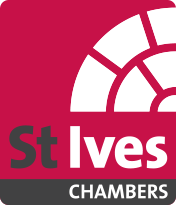“HRA Claims” by Tom Harrill
HRA CLAIMS
At our recent Child Care Conference, Tom Harrill spoke on the subject of Human Rights claims.
Here are some key points from his presentation.
1. There is a 1 year primary limitation period so those acting for claimants need to do so quickly.
2. All the following are potentially actionable as unlawful:
a. A local authority failing for an unacceptably long time to:
i. conduct a proper assessment of the needs of a child;
ii. prepare and put in place a proper care plan for a looked after child;
iii. meet the assessed needs of a looked after child; or
iv. issue proceedings.
b. A local authority failing to:
i. identify and put in place appropriate support for a looked after child;
ii. promote contact between a looked after child and their siblings and/or parents;
iii. involve the child’s parents in its decision-making process and inform them of its decisions;
iv. review its decision-making in proceedings;
v. analyse and disclose relevant evidence; or
vi. via the independent reviewing service, challenge the authority’s conduct.
3. HRA claims are governed by the Civil Procedure Rules 1998 and whether heard within proceedings or as a freestanding claim, claims for declarations and/or damages should be:
a. issued formally under Pt. 8 of the CPR;
b. not on Form C2; and
c. not introduced via a skeleton argument or position statement.
4. A child is a protected party under CPR Pt. 21 and requires a litigation friend, however:
a. the children’s guardian, appointed in specified proceedings, may give advice about the appropriateness of pursuing a HRA claim but may NOT act as litigation friend or ‘front’ the HRA claim itself; and
b. Cafcass cannot authorise its officers to act as litigation friends to minor claimants and its general policy does not support children’s guardians acting as litigation friend.
5. There are funding difficulties – check with the Legal Aid Agency. Also, if damages are awarded the statutory charge MAY apply.
6. In order to succeed in a claim for declarations and/or damages, the claimant must:
a. prove that the local authority (or other public body) has acted, or failed to act, in a way which is incompatible with a Convention right;
b. prove that they are the ‘victim’ of that unlawful act; and
c. persuade the Court that declarations (and damages moreover) are ‘necessary’ to afford them ‘just satisfaction’.
7. The making of declarations for breaches does not mean that an award in damages will follow because it is a discretionary remedy.
To view the full version of our Child Care Newsletter, click here

